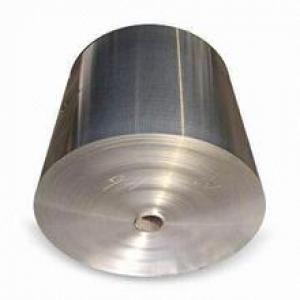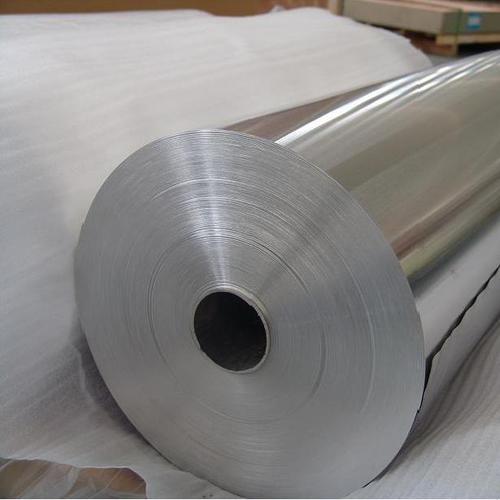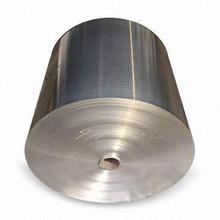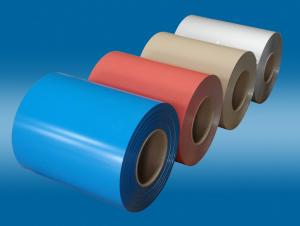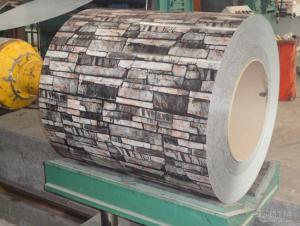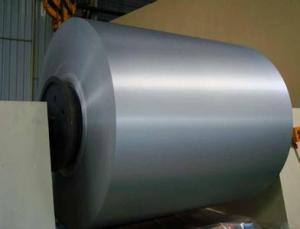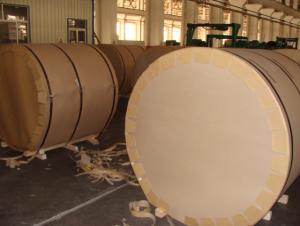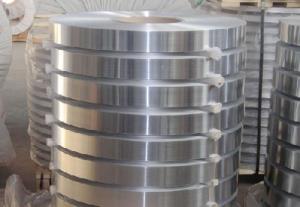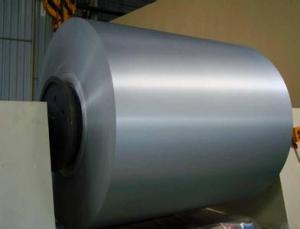ALUMINIUM COIL 1xxx
- Loading Port:
- China Main Port
- Payment Terms:
- TT or LC
- Min Order Qty:
- 8 m.t.
- Supply Capability:
- 2000 m.t./month
OKorder Service Pledge
OKorder Financial Service
You Might Also Like
Structure of Aluminium Coil Description:
Aluminium coil/sheet are of a wide range of specifications, and they are widely used in:
Interior: wall cladding, ceilings, bathrooms, kitchens and balconies, shutters, doors...
Exterior: wall cladding, facades, roofing, canopies, tunnels,column covers , renovations...
Advertisement: display platforms, signboards, fascia, shop fronts...
Main Features of Aluminium Coated Coil :
1) High gloss
2) High flexibility
3) Impact resistance
4) Excellent weather-proof durability
5) Anti-ultraviolet
6) High erosion resistance
7) Stable color and gloss
8) Good mechanical processing performance
9) Abrasion resistance
Image of Aluminium Coil:
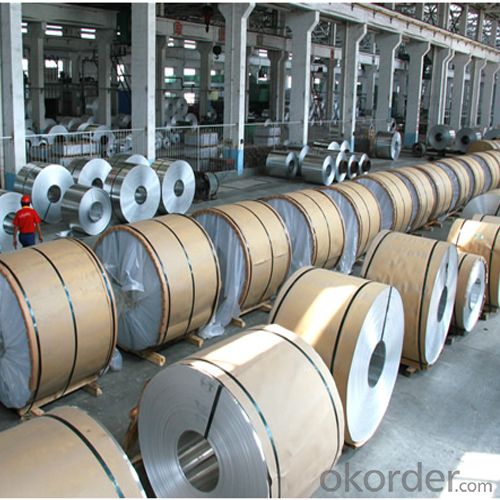
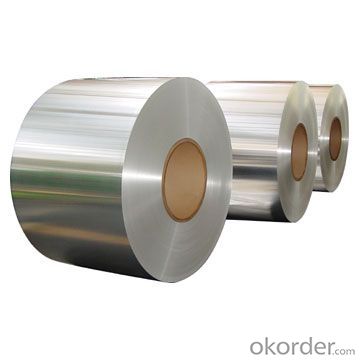
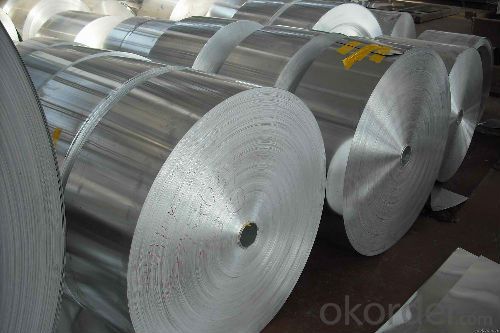
FAQ of Aluminium Coil:
a.What is monthly capacity
---CNBM is one stated own company and our monthly capacity is about 2000tons.
b. Now which countries do you export your goods?
---Now we export to South East Asia,Africa, North America,South America ect.
- Q: What are the safety measures one should take when using aluminum coils indoors?
- <p>When using aluminum coils indoors, it's crucial to ensure proper ventilation to prevent the buildup of gases that can be harmful if inhaled in large quantities. Always follow the manufacturer's guidelines for installation and operation. Keep the coils away from flammable materials and ensure they are securely fastened to prevent tipping or falling. Regularly inspect the coils for any signs of damage or wear, and replace them if necessary. Never use aluminum coils in enclosed spaces without proper exhaust systems, and always have a fire extinguisher nearby in case of emergencies.</p>
- Q: What are the different protective coatings available for aluminum coils?
- Aluminum coils can be protected by various types of coatings. Some popular options include: 1. Polyester Coating: This coating is versatile and offers excellent resistance to weather and color fading. It is commonly used in outdoor settings where the coils may face harsh weather conditions. 2. Polyvinylidene Fluoride (PVDF) Coating: PVDF coatings are highly durable and resistant to fading, chalking, and chemicals. They are often used in architectural applications that require a long-lasting and high-performance finish. 3. Epoxy Coating: Epoxy coatings provide strong adhesion and corrosion resistance. They are frequently utilized in industrial settings, such as the production of appliances or automotive parts. 4. Acrylic Coating: Acrylic coatings offer good weather resistance and protection against UV rays. They are commonly used indoors or in areas with mild outdoor exposure. 5. Polyurethane Coating: Polyurethane coatings are known for their high impact resistance and flexibility. They are often chosen for applications where the coils may undergo physical stress or deformation. 6. Ceramic Coating: Ceramic coatings provide exceptional heat resistance and thermal stability. They are commonly used in automotive applications or areas with high-temperature exposure. In conclusion, the selection of a protective coating for aluminum coils depends on specific requirements, such as weather resistance, durability, or chemical resistance. It is crucial to consider environmental conditions and performance expectations when choosing the appropriate coating.
- Q: How much will be burned out if the soaked and oxidized 5182 aluminum coil is melt down and reprocessed?
- Burn out rate is generally between 1% -2.5%, but that varies among plants as their actual situations are different.
- Q: at what state is aluminum at room temperature?what are aluminums physical properties?what is aluminum obtained from?
- Aluminum okorder /
- Q: Explain the distinctions between cold rolled aluminum coils and hot rolled aluminum coils, focusing on the manufacturing process and resulting properties.
- <p>Cold rolled aluminum coils are produced by rolling aluminum at room temperature, resulting in a smoother surface and tighter dimensional tolerances. They have higher strength and hardness due to cold working. Hot rolled aluminum coils, on the other hand, are rolled at high temperatures, which allows for larger thickness reductions and creates a rougher surface. Hot rolled coils are generally softer and more ductile, with lower strength and hardness compared to cold rolled coils. The choice between the two depends on the specific application requirements for strength, surface finish, and formability.</p>
- Q: If you were to make something from each of these.which is more expensive? aluminum or carbon fiber ?which is stronger?What would the advantages or disadvantages of each be?
- This Site Might Help You. RE: aluminum vs carbon fiber ? If you were to make something from each of these. which is more expensive? aluminum or carbon fiber ? which is stronger? What would the advantages or disadvantages of each be?
- Q: helicopters rotorblades are made of honeycombed aluminum to give them strength, so isn't it a good idea for automakers to use the same technology to strengthen the frames of autos to make them lesslikely to cave in during a side impact auto accident?
- Sure you could do this, but the reason it won't happen is cost. If your target is today's strength car, you could make the car lighter. If your target is today's weight car, you could make the car stronger. Honeycombed aluminum is not so much a strong material as a strong material at a given weight. For just a little more weight though, other less exotically manufactured materials have even greater strength, so I doubt that this will be seen in cars. Airplanes have an entirely different cost function, and weight is everything so they can afford these materials.
- Q: What is the modulus of elasticity of aluminum coils?
- The modulus of elasticity of aluminum coils, also known as Young's modulus, is a measure of the material's stiffness and its ability to resist deformation under an applied load. The modulus of elasticity for aluminum coils is typically around 70 GPa (gigapascals) or 10 million psi (pounds per square inch). This value may vary slightly depending on the specific alloy and temper of the aluminum used in the coils. The modulus of elasticity helps determine the strength and flexibility of aluminum coils, making it an important factor in various applications such as construction, automotive, and aerospace industries.
- Q: This question asks about the impact of aluminum coils on safety and health protection during welding processes.
- <p>Aluminum coils can significantly affect welding safety and health protection due to their unique properties. Aluminum is lighter than steel and conducts heat quickly, which can lead to faster heat transfer to the welder, increasing the risk of burns. Additionally, aluminum welding produces fumes that contain aluminum oxide, which can be harmful if inhaled over time, potentially causing respiratory issues or even neurological damage. Welders must use proper ventilation and respiratory protection to mitigate these risks. Moreover, aluminum's high reflectivity can cause intense light exposure, necessitating the use of appropriate eye protection to prevent eye injuries. Overall, aluminum welding requires specific safety measures to protect welders' health and safety.</p>
- Q: Can aluminum coils be recycled multiple times?
- Yes, aluminum coils can be recycled multiple times. Aluminum is a highly recyclable material, and the recycling process for aluminum coils involves melting them down to create new coils. This means that aluminum coils can be recycled indefinitely without losing their properties or quality.
Send your message to us
ALUMINIUM COIL 1xxx
- Loading Port:
- China Main Port
- Payment Terms:
- TT or LC
- Min Order Qty:
- 8 m.t.
- Supply Capability:
- 2000 m.t./month
OKorder Service Pledge
OKorder Financial Service
Similar products
Hot products
Hot Searches
Related keywords

